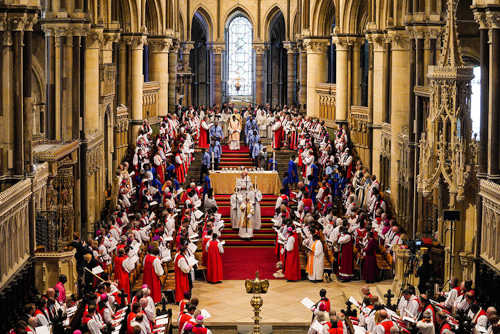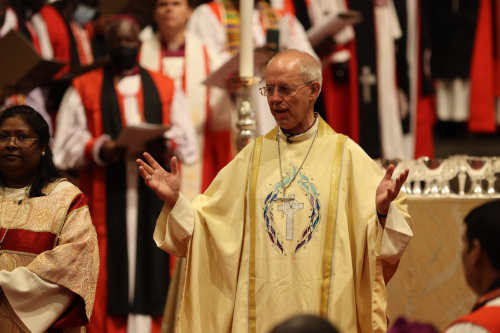
Common Prayer was once integral to Anglican identity.
I made several efforts to have worship as seen as integral to the mission of the church. Some examples:
Here in 2008,
in 2012,
in 2013,
and in 2014.
I have regularly argued that spirituality and worship be foundational to church leadership formation, training, and study, even with a spiritual year to build one’s further formation on. All this, so far, has come to nothing.
What fascinated me is that nowhere does Common Prayer even get a mention in the recent draft Lambeth Calls. Not even in “Anglican Identity”!!!
Admittedly, the process of drafting these calls has not been clear: there appears to be a drafting group for each Call, and then there appears to be an editor or leader of each Call, and still after that there appears some others may alter the group’s Call. But there does not seem to have been a process for amending the Call by the body of bishops who assembled at the Lambeth Conference. So somehow, a very small group that drafted each Call (and it is not apparent to me how that group was chosen) ends up producing a Call that the body of bishops then bring back to their respective dioceses… Somewhere in there, there just might be a further process that means another (as-yet-unknown) group may be able to alter the text of these Calls before they are presented to dioceses.
In any case, in an Anglican Communion that has its bishops make no mention of worship in our mission or identity, I continue to advocate that worship, spirituality, common prayer, liturgy be front and centre of what it means to be Anglican, in fact what it means to be Christians, followers of Jesus, and continuers of Jesus’ life, teaching, and mission.
As I visit different Anglican communities, I continue time and again experience the worship as a sacred poetry recital (from a book, pew sheet, or most commonly now, focusing on a screen). And I genuinely wonder, what makes these people return again and again? I also wonder why new people would consider returning? Is there genuinely, generally an encounter with the Numinous in our services? Do people come away declaring, “How awesome is this place! This is none other than the house of God, and this is the gate of heaven”? (Genesis 28:17)
Surprisingly (shockingly?!), anywhere in the Lambeth Conference Calls there is no mention of the Book of Common Prayer (1662) as having any foundational place or uniting role in the Anglican Communion’s life. Wouldn’t one have expected at least a mention of it in the Anglican Identity Call? Fascinatingly, in one place in the Calls, there is a use of the term “Book of Common Prayer”, but, without any apology or explanation, this is actually a reference to The Episcopal Church’s Book of Common Prayer of 1979. It quotes that book’s ‘Baptismal Covenant’, simply assuming (bizarrely) that other Anglican provinces have the same quote. My province, and many others, doe not even have a ‘Baptismal Covenant’! [See Interfaith Relations 2.4]
I have, more recently, been stressing that worship and spirituality be a primary focus of the worshipping community’s life (it’s in that title, isn’t it, “worshipping community”?!) And that this be a central way we present ourselves to those beyond our community.
If the bishops and senior leaders of Anglicanism forget to articulate the significance of worship, spirituality, and common prayer to our identity, then it is up to us to keep reminding them – and, more importantly, to be living that in our communities.




Well done, Bosco. Thank G-d for this comprehensive articulation of the fundamental strand and its destruction from within.
Fr Paul Johnstone
That silence is strange as in my limited Anglican experience liturgy, even if freely interpreted sometimes, is very much part of Anglican identity along with weekly communion these days. Maybe they don’t think God’s World is interested in liturgy?